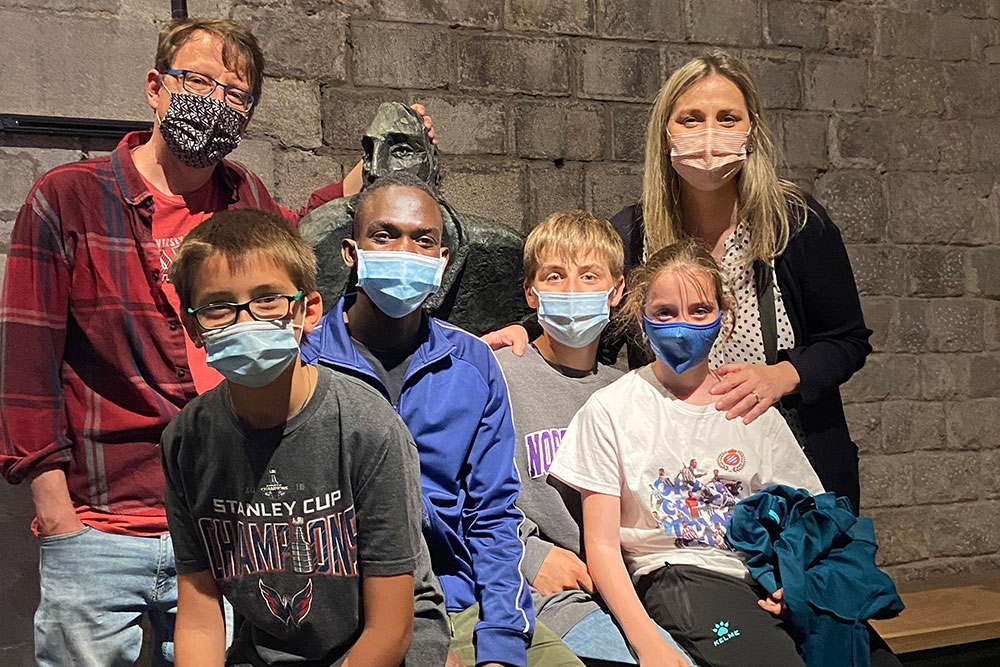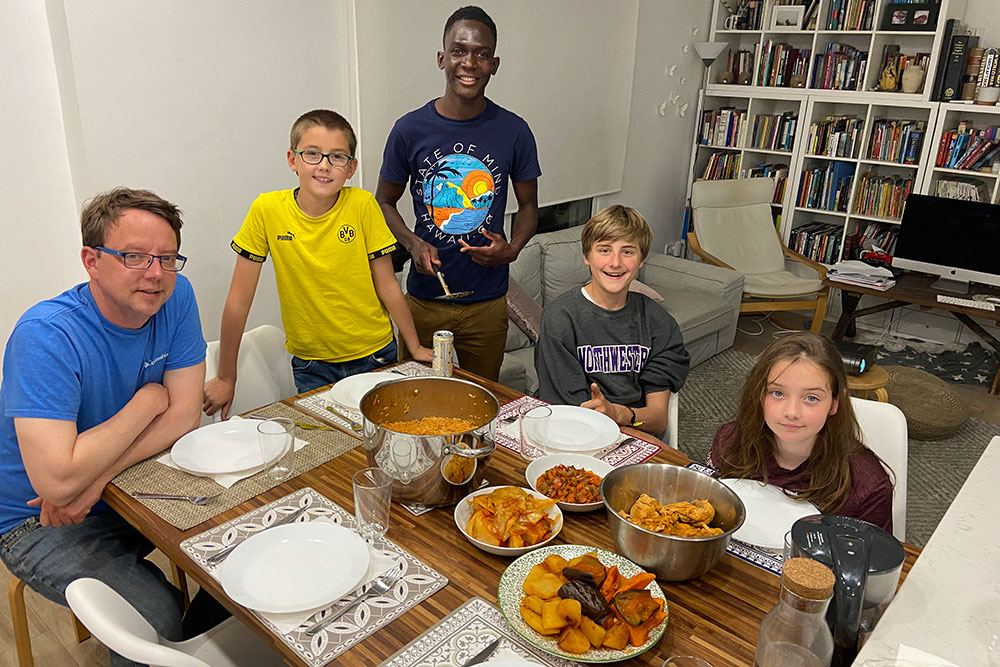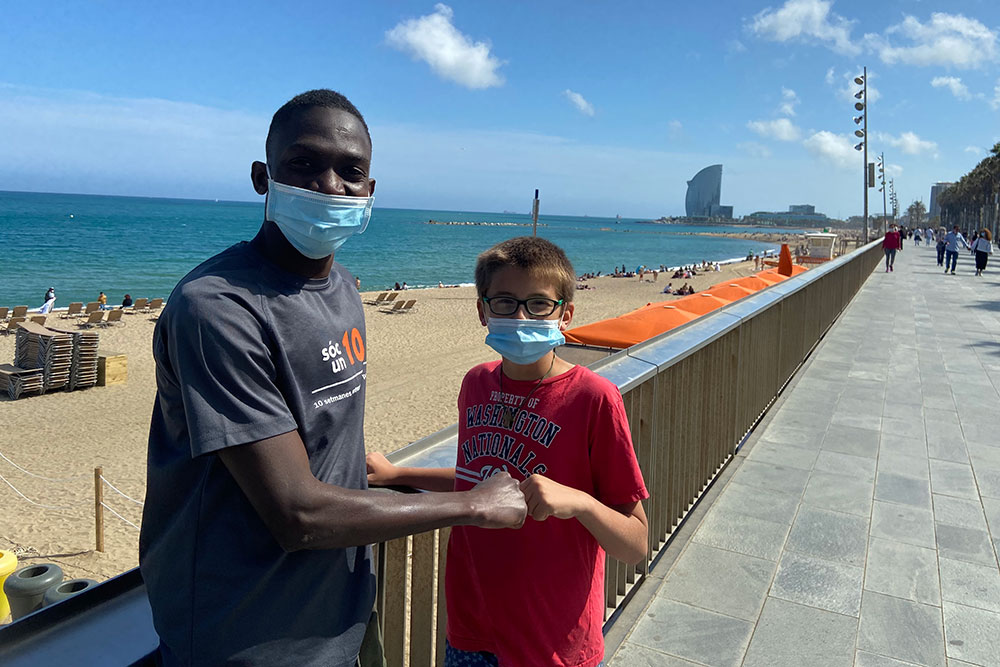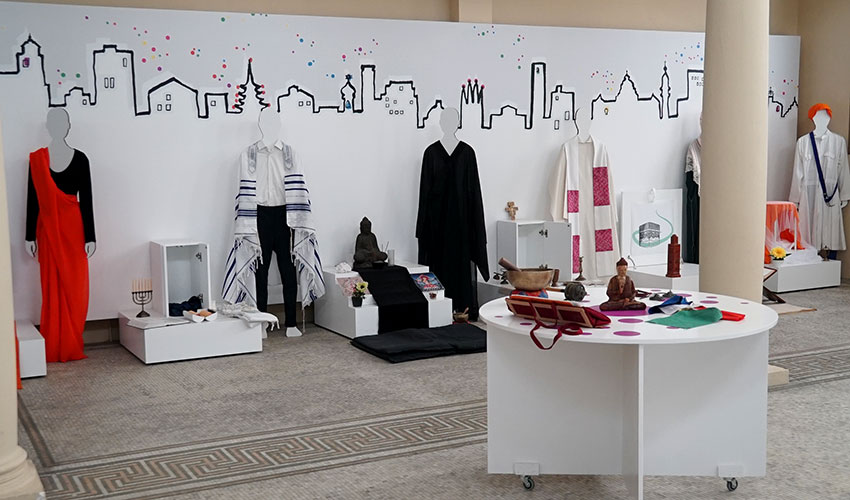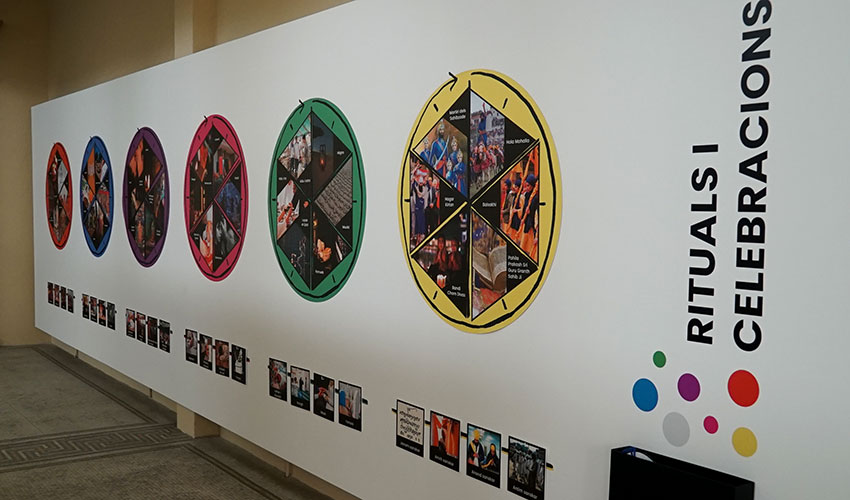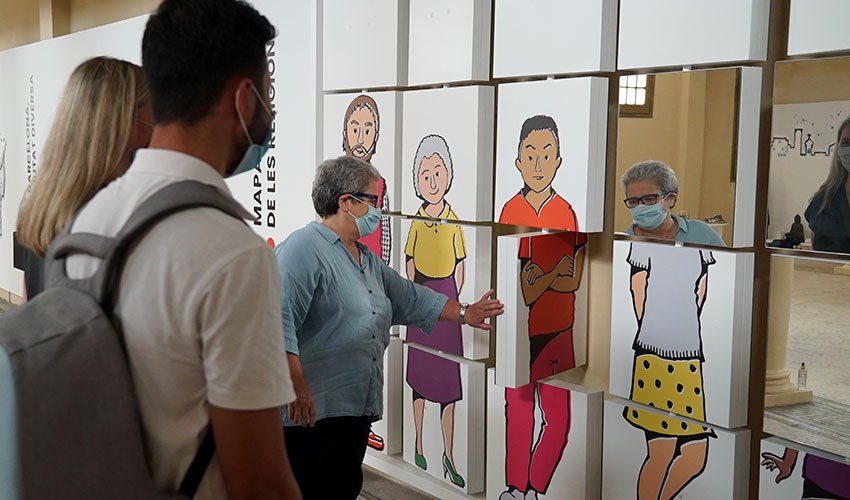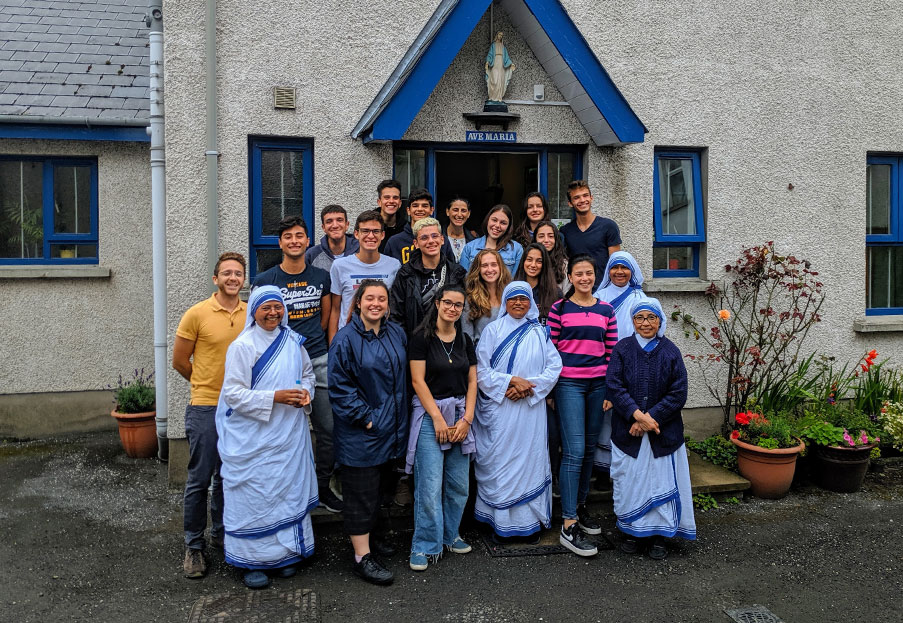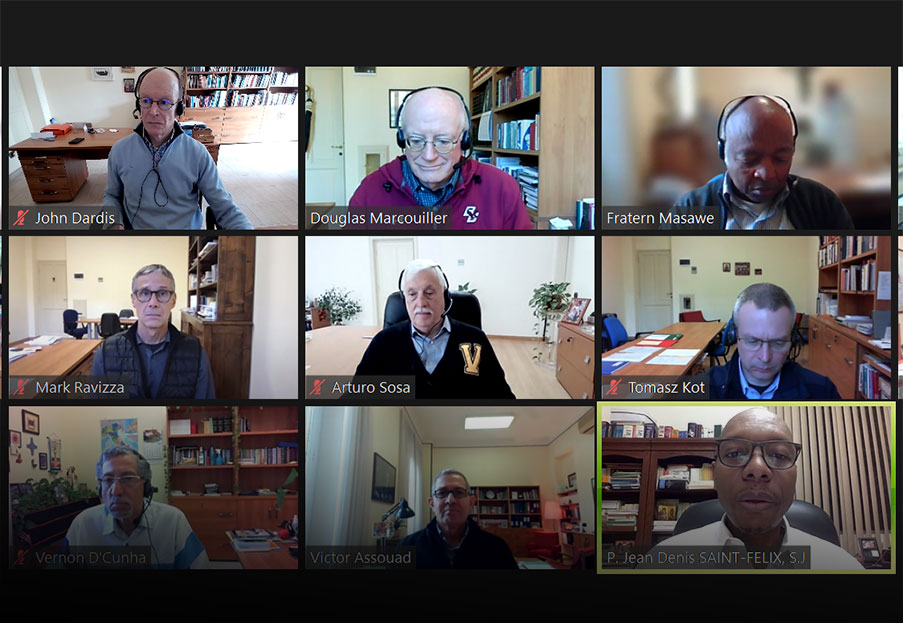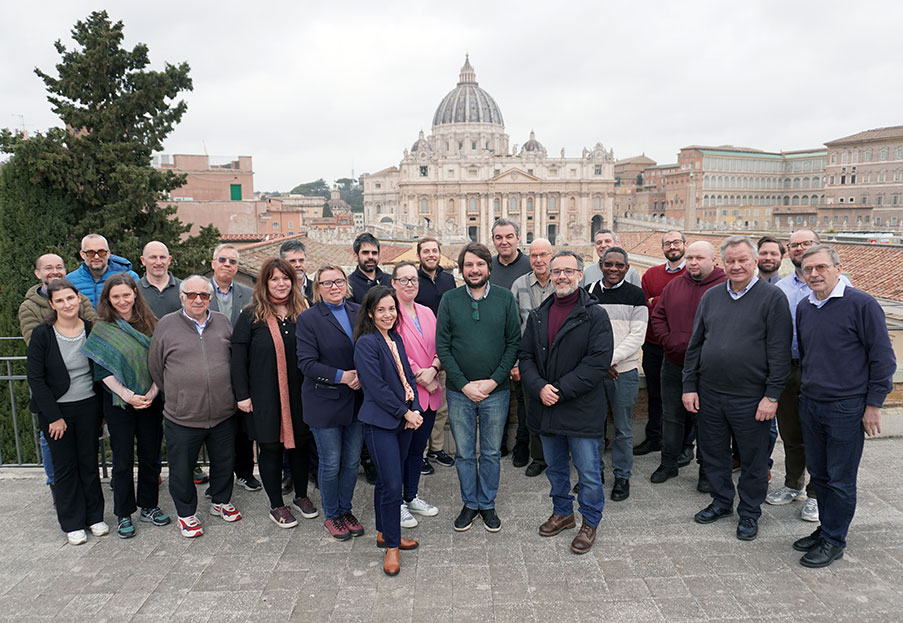Hospitalaris: hosting refugees and being hosted, an opening to the future
Welcoming guests is one of the most profound and transforming experiences we have had as a family.
This one sentence sums up the beauty of the Hospitalaris project of Migra Studium, a Jesuit work in Barcelona, Spain. This was how Marta Baylina described the richness of sharing her family life with a refugee. At the same time, she encouraged other families to join the project.
In a previous article, we presented the various ways in which the Migra Studium team is trying to help migrants and refugees in the Catalan capital. Inspired by the Jesuit Peter Claver (1580, Verdú, Catalonia – 1654, Cartagena, Colombia) and his commitment to enslaved Africans, the refugee apostolate extends evangelical care to persons who have passed through great hardships and who often still face marginalisation and rejection.
In the Migra Studium offices, we talked with three people who informed us about the work of the Hospitalaris network: Pilar Pavia Sala, a Religious of the Sacred Heart who is coordinator of the network; Aattaa Allah Marjani, a young Moroccan hosted by the network; and Marta Baylina Melé, a professor and mother whose family has hosted refugees.
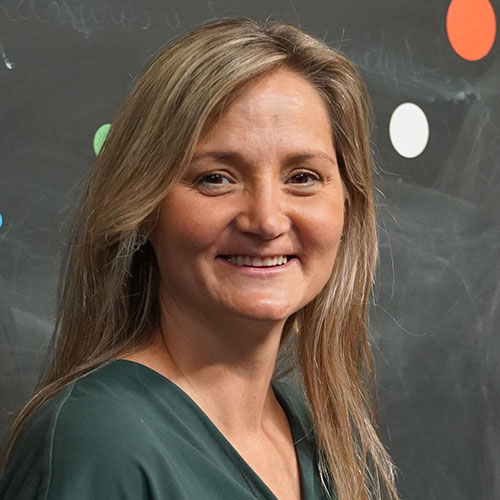
Marta Baylina Melé
Currently, our family is having a second hosting experience. Our first was in autumn 2018, when Beshr from Syria lived with us. Since April this year, Mamadou from Senegal has been part of our family. All this happened ‘providentially’. As a professor, I had some time available in August so I offered myself as a volunteer to accompany a Syrian refugee in his language lessons. I thought I was going to be helping him, but he was the one who taught me a lot. I learned what he had suffered during his long journey and about the traumas that still haunted him. And I was introduced to the Hospitalaris project...
At first I was afraid to talk with my husband and my three children, Carmen, Jordi and Matt (aged 10 to 14 ), about taking in a refugee. As it turned out, for the children, there was NO problem at all; it was we adults who felt reluctant. Beshr came to live with us. He was 19 years old, and he easily made friends with our children. After that, it was the children themselves who insisted, “Let’s do it again! Who can come and live with us?” Now we are hosting Mamadou. He likes football, which immediately brought him closer to Jordi. Our children have naturally become more aware of the situation of migrants and refugees and, without making a big deal of it, they share this beautiful experience with their own friends. They are also aware that life is easy for them while it is so hard for other young people their age.
We accompany the refugees simply through friendship and sharing our daily life. These young migrants have to cross many administrative barriers. Their goal is simply to study and prepare for the future, but immigration rules often complicate matters. Given this situation, Migra Studium offers a framework for accompanying the refugees and giving them confidence so that they can move towards the future with hope.
The O’Dea-Baylina family does all sorts of activities with the migrants they welcome into their home, including visits to the Basilica of Santa María del Mar.
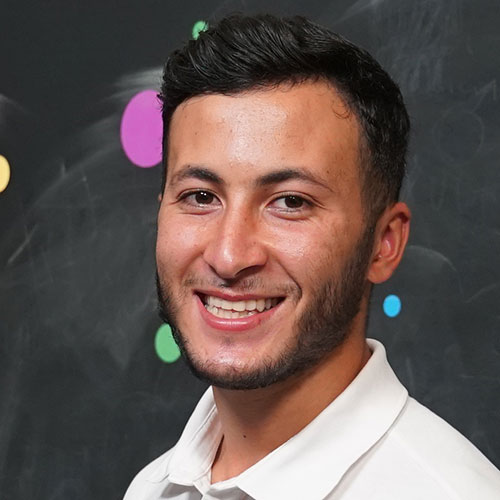
Aattaa Allah Marjani
I am Moroccan. I was living in a remote part of the country where I saw no future. Since the age of 12, I told myself that, if I wanted to have a future, I would have to get out of that dead-end situation. When I was 17, I managed to get a tourist visa to visit Europe with my father. After 15 days he returned to the family, but I stayed and looked toward the future.
Of course, it wasn’t easy. I had no family, no real friends, no fluency in the language. I lived as a squatter and even on the street. It was football that opened doors for me. I managed to get onto a team, and the coordinator realised that I was living on the street. She put me in touch with Pau and Pilar at Migra Studium, and I was accepted into a family. The kids were about my age and became like brothers and sisters to me. After that experience I had more autonomy, so I am now living in Casal Arrupe, a residential group home of Migra Studium. There are six of us from different countries, and we’re learning to live together. I now have friends from Spain, but also from places like Guinea, Gambia, and we all feel equal.
I am Muslim, from a Muslim family. My name, Aattaa Allah, means ‘gift from God’. I believe that we can live with people of other religions. It is all about respect. We are all human, and we must respect one another, no matter what religion a person belongs to.
Since I have been with Migra Studium, I have changed a lot, I have learned a lot. Here I can make progress in sports; I am now on a volleyball team!
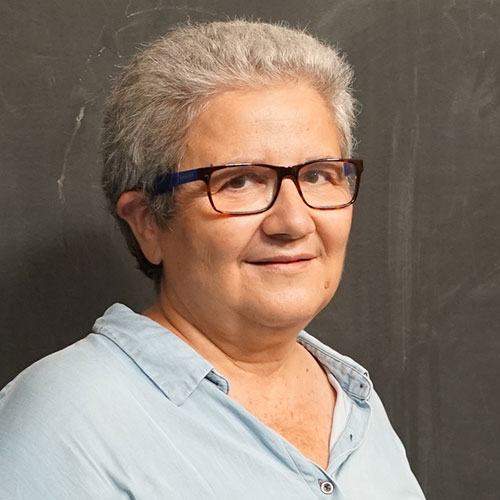
Pilar Pavia Sala
As facilitator of the Hospitalaris project, Pilar Avia is well informed about migrants in difficult situations in Barcelona and, more widely, in Spain. In 2000, 4% of Spain’s population was of foreign origin, but by 2019 it was over 15%, and an estimated 700,000 people are in an irregular migratory situation. Even though Spain has one of the world’s lowest birth rates and badly needs immigrants, the path to legal status is fraught with difficulties.
Has the mentality of Spaniards changed for the better since 2000? It’s hard to tell because there are so many conflicting opinions, and the right-wing, anti-immigration movements are very vocal. Groups like ours have to deal with a mentality that sees immigrants as ‘job stealers’. In fact, finding flats for immigrant families is more difficult for our foundation now than it was two years ago. The context of the pandemic has not helped, of course.
But the Hospitalaris project is doing well. It has developed over time because we welcome people in different ways: we started with families, and then Casal Arrupe was opened. The Jesuits made the residence available to us, especially for young people who had been living with families for four months but still needed support. We can’t let them go back to the streets or to shelters; that would be a huge step backwards. The process of regularising their status in the country often takes over a year. So hostels like this one, with support from our organisation and a group of volunteers, are a good solution.
The Society of Jesus is very involved in the project. The Society provides material help, of course, but it also offers elements of Ignatian spirituality to those involved. The Jesuit Pau Vidal works full-time in this apostolate, and other Jesuits are collaborating. It is the spirit of the Society of Jesus that animates us, and that is also the spirit of Peter Claver. We went to Verdú, Claver’s birthplace, which really inspired us. Of course the situation has changed since the time of the slaves, but the issue of fundamental human rights - rights the slaves did not have - is still current. We are working hard to make it clear to people that there can’t be different categories of citizens, some with full rights, and others with limited rights and freedom.
Inter-religious encounter and dialogue are themes that Migra Studium takes to heart because they contribute greatly to a climate of acceptance and welcome in Catalan society. A large hall on the organisation’s premises is dedicated to interreligious awareness; it welcomes immigrants as well as host families and various groups that are committed to working towards a future of openness and solidarity.
